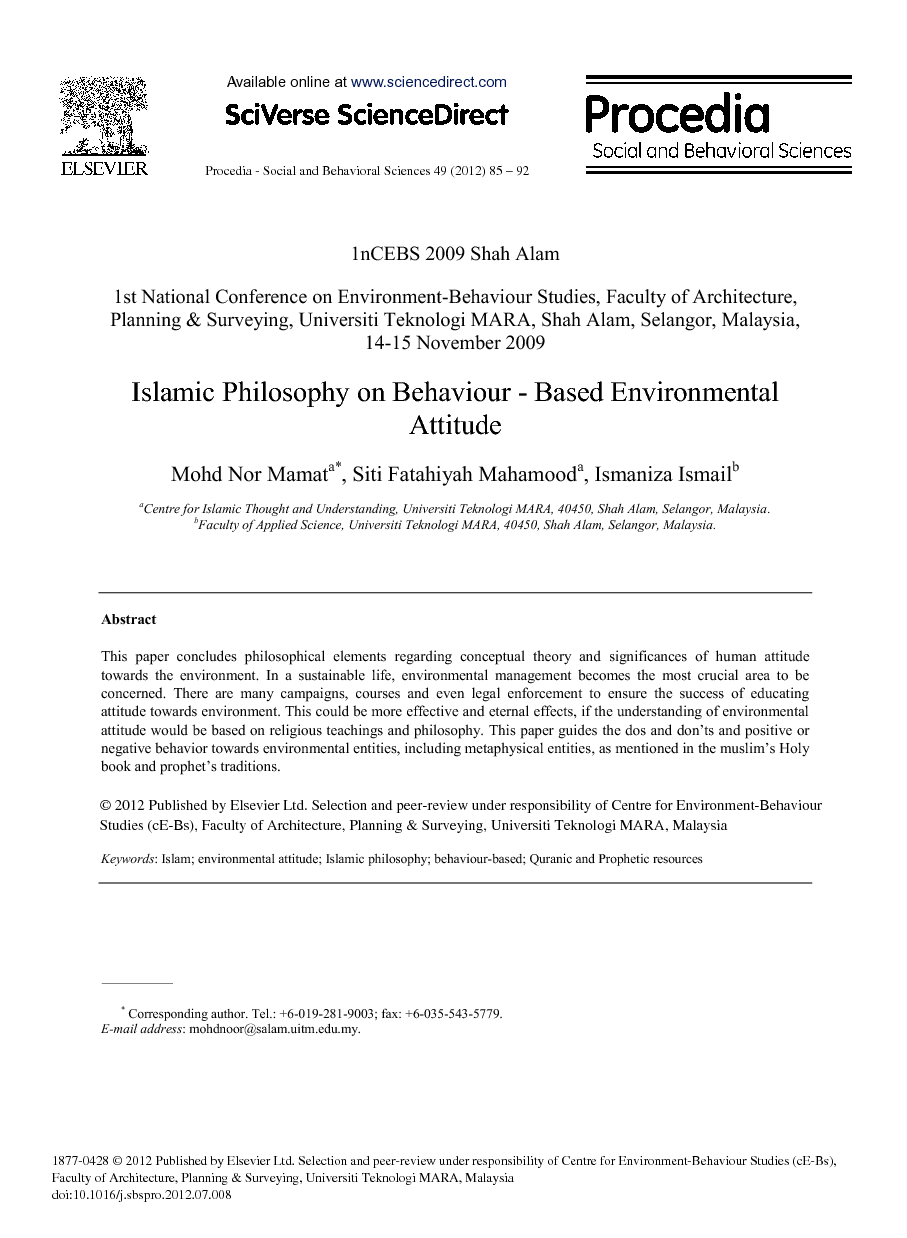ترجمه فارسی عنوان مقاله
فلسفه اسلامی درباره رفتار - نگرش مبتنی بر محیط
عنوان انگلیسی
Islamic Philosophy on Behaviour - Based Environmental Attitude
| کد مقاله | سال انتشار | تعداد صفحات مقاله انگلیسی |
|---|---|---|
| 1273 | 2012 | 8 صفحه PDF |
منبع

Publisher : Elsevier - Science Direct (الزویر - ساینس دایرکت)
Journal : Procedia - Social and Behavioral Sciences, Volume 49, 2012, Pages 85–92
ترجمه کلمات کلیدی
اسلام - نگرش محیطی - فلسفه اسلامی - مبتنی بر رفتار - منابع قرآنی و نبوی -
مقاله درباره اسلام
کلمات کلیدی انگلیسی
Islam,environmental attitude,Islamic philosophy,behaviour-based,Quranic and Prophetic resources,

